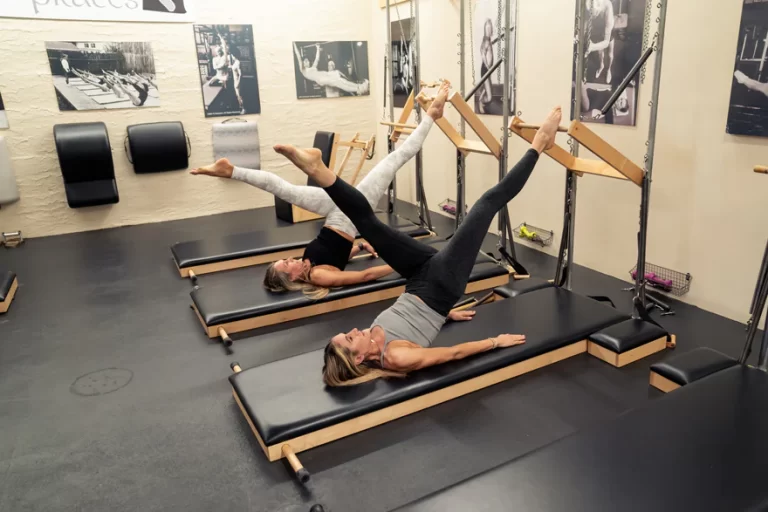Are you feeling overwhelmed by the idea of transforming your health? If making big lifestyle changes feels intimidating, the key to success might be simpler than you think: small, realistic changes. Starting small not only makes the journey less daunting but also increases the chances of lasting success.
When aiming to build a healthier lifestyle, set realistic and manageable goals that align with your age, fitness level, and current habits. Each small step can lead to a significant impact over time. Here’s a guide to easy, actionable changes you can start implementing today for a healthier tomorrow.
Simple Fitness Tweaks

1. Take a Walk After Dinner
Instead of slumping on the couch after a meal, take a brief 10-15 minute walk. Research published in the International Journal of General Medicine shows that walking immediately after eating helps stabilize blood sugar levels more effectively than waiting an hour. This small change can reduce risks of long-term issues like heart disease and vision loss. Start simple: Try walking around the block and gradually increase your time as you feel comfortable.
2. Park Farther Away
When going to work or running errands, opt for a parking spot further from the entrance. This minor shift adds extra steps to your day without setting aside dedicated time for exercise. Once inside, consider taking the stairs instead of the elevator. These small additions can add up to stronger leg muscles, increased calorie burn, and improved cardiovascular health.
3. Try At-Home Workouts
Busy schedule? Lack of gym access? Short home workouts are an easy way to stay active. A quick 10-minute session targeting different muscle groups, like glute bands for leg strength or online yoga classes, is achievable for all fitness levels and schedules. Tip: Set a daily reminder to complete a short workout and gradually increase duration as it becomes routine.
4. Find an Accountability Partner
If staying motivated is a challenge, a friend or training partner can help keep you on track. An accountability partner offers encouragement and makes workouts more enjoyable. Even if you’re not meeting in person, checking in with each other can provide that extra push you need to stay active.
5. Track Progress in a Journal
While a partner can support you, self-tracking is equally important. Keep a fitness journal noting your workout types, duration, and any progress in endurance or strength. Reflecting on improvements can provide the motivation needed to keep moving forward.
Small Dietary Adjustments
1. Start Your Day with Fiber
A fiber-rich breakfast fuels you with lasting energy and supports digestion, cholesterol levels, and weight management. Choices like whole-grain toast with almond butter or a veggie breakfast wrap can help you feel full longer and set a positive tone for the day.
2. Flavor Your Water Naturally
Sugary drinks can quickly add empty calories and harm your health. Try adding fresh lemon, cucumber, or mint to your water for a calorie-free flavor boost. This change can help you stay hydrated and reduce your sugar intake, which benefits weight management and dental health.
3. Go Meatless One Day a Week
Reducing meat consumption once a week can help protect heart health and reduce environmental impact. Aim to cook one plant-based meal, such as a veggie stir-fry or a protein-packed salad with beans and quinoa. This small step supports overall health while being kinder to the planet.
4. Choose Healthier Baking Alternatives
When baking at home, replace ingredients like butter with healthier substitutes like unsweetened applesauce or Greek yogurt. These swaps maintain flavor while reducing calorie and fat content, making treats a little more guilt-free.
5. Plan and Prep Meals
Preparing meals at home instead of relying on takeout can save money and help control portions. Dedicate a few hours weekly to prepping easy, healthy meals that fit your lifestyle. Keep your meals balanced with protein, complex carbs, and veggies, and you’ll be set for a nutritious week.
Mental Health Boosters
1. Embrace Silence Daily
Try to schedule 10 minutes of uninterrupted quiet each day, free of screens or notifications. This time can offer space for reflection, stress relief, and even creative problem-solving, giving your mind a much-needed reset in a busy world.
2. Incorporate Meditation
Regular meditation can ease stress, improve focus, and boost self-awareness. Start with short 5-10 minute sessions in a quiet space and build up as you feel comfortable. Meditation has been linked to lower blood pressure, reduced anxiety, and a greater sense of calm.
3. Declutter Your Environment
A clean, organized space can help reduce stress and improve mood. Start by decluttering one small area at a time, like your desk or nightstand. Studies show that cluttered spaces contribute to stress and anxiety, so making your environment tidy can have a calming effect.
4. Practice Forgiveness
Letting go of grudges may be one of the healthiest changes you make. By forgiving others, you can relieve stress, improve relationships, and make room for positive thoughts. This shift can support better mental health and resilience over time.
5. Express Daily Gratitude
Studies from USC show that gratitude can improve sleep, lower depression, and boost well-being. Take a few moments each day to reflect on what you’re grateful for. A small gratitude practice can make a big difference in how you perceive and appreciate life.
Taking the First Step
Change doesn’t have to be overwhelming. Small, consistent steps can lead to big improvements in both physical and mental health. Choose one or two changes from each section and start implementing them today. In time, these seemingly minor adjustments can help you create a healthier, happier lifestyle.

